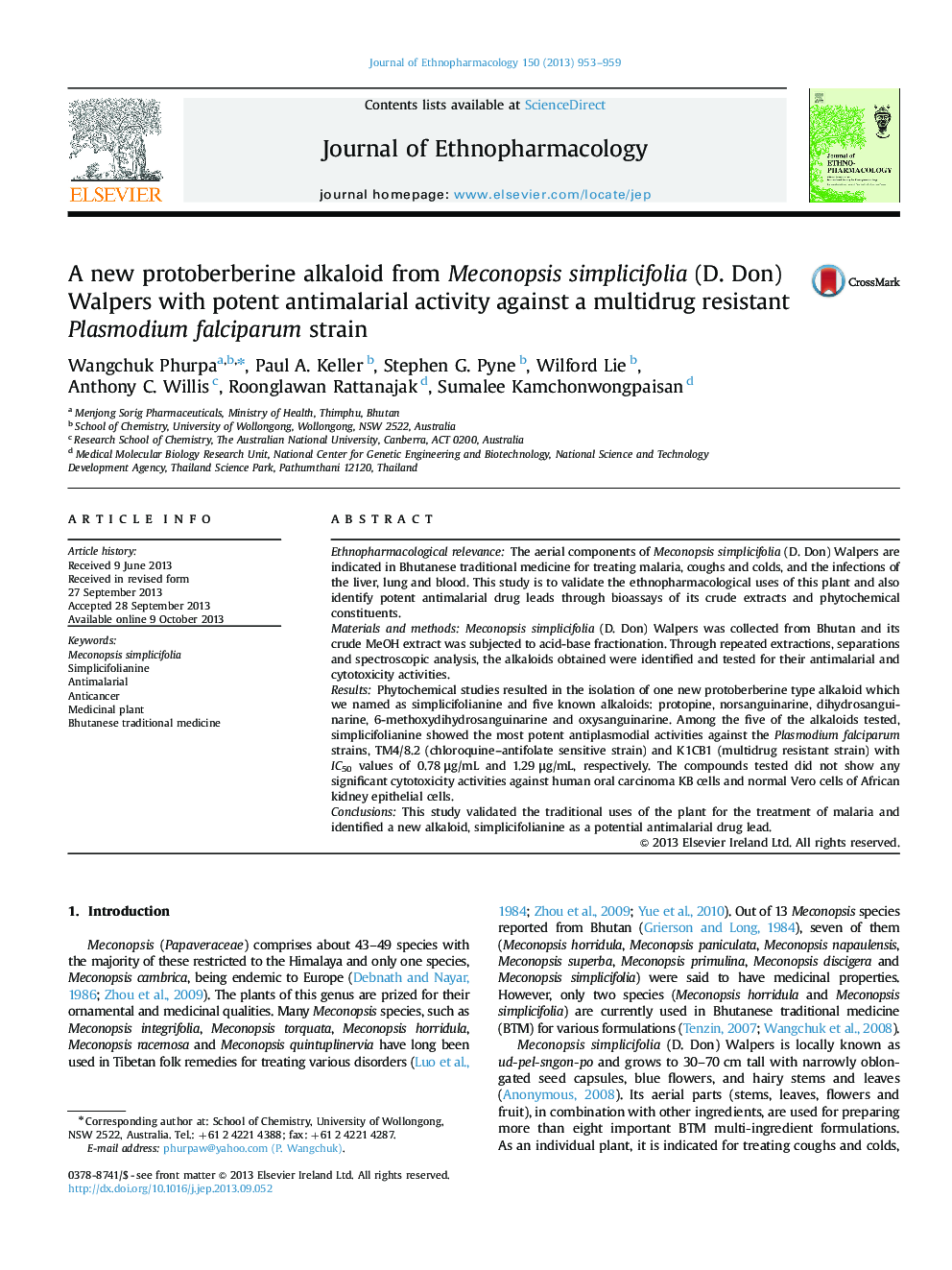| کد مقاله | کد نشریه | سال انتشار | مقاله انگلیسی | نسخه تمام متن |
|---|---|---|---|---|
| 2545335 | 1560406 | 2013 | 7 صفحه PDF | دانلود رایگان |

Ethnopharmacological relevanceThe aerial components of Meconopsis simplicifolia (D. Don) Walpers are indicated in Bhutanese traditional medicine for treating malaria, coughs and colds, and the infections of the liver, lung and blood. This study is to validate the ethnopharmacological uses of this plant and also identify potent antimalarial drug leads through bioassays of its crude extracts and phytochemical constituents.Materials and methodsMeconopsis simplicifolia (D. Don) Walpers was collected from Bhutan and its crude MeOH extract was subjected to acid-base fractionation. Through repeated extractions, separations and spectroscopic analysis, the alkaloids obtained were identified and tested for their antimalarial and cytotoxicity activities.ResultsPhytochemical studies resulted in the isolation of one new protoberberine type alkaloid which we named as simplicifolianine and five known alkaloids: protopine, norsanguinarine, dihydrosanguinarine, 6-methoxydihydrosanguinarine and oxysanguinarine. Among the five of the alkaloids tested, simplicifolianine showed the most potent antiplasmodial activities against the Plasmodium falciparum strains, TM4/8.2 (chloroquine–antifolate sensitive strain) and K1CB1 (multidrug resistant strain) with IC50 values of 0.78 μg/mL and 1.29 μg/mL, respectively. The compounds tested did not show any significant cytotoxicity activities against human oral carcinoma KB cells and normal Vero cells of African kidney epithelial cells.ConclusionsThis study validated the traditional uses of the plant for the treatment of malaria and identified a new alkaloid, simplicifolianine as a potential antimalarial drug lead.
Figure optionsDownload high-quality image (368 K)Download as PowerPoint slide
Journal: Journal of Ethnopharmacology - Volume 150, Issue 3, 12 December 2013, Pages 953–959